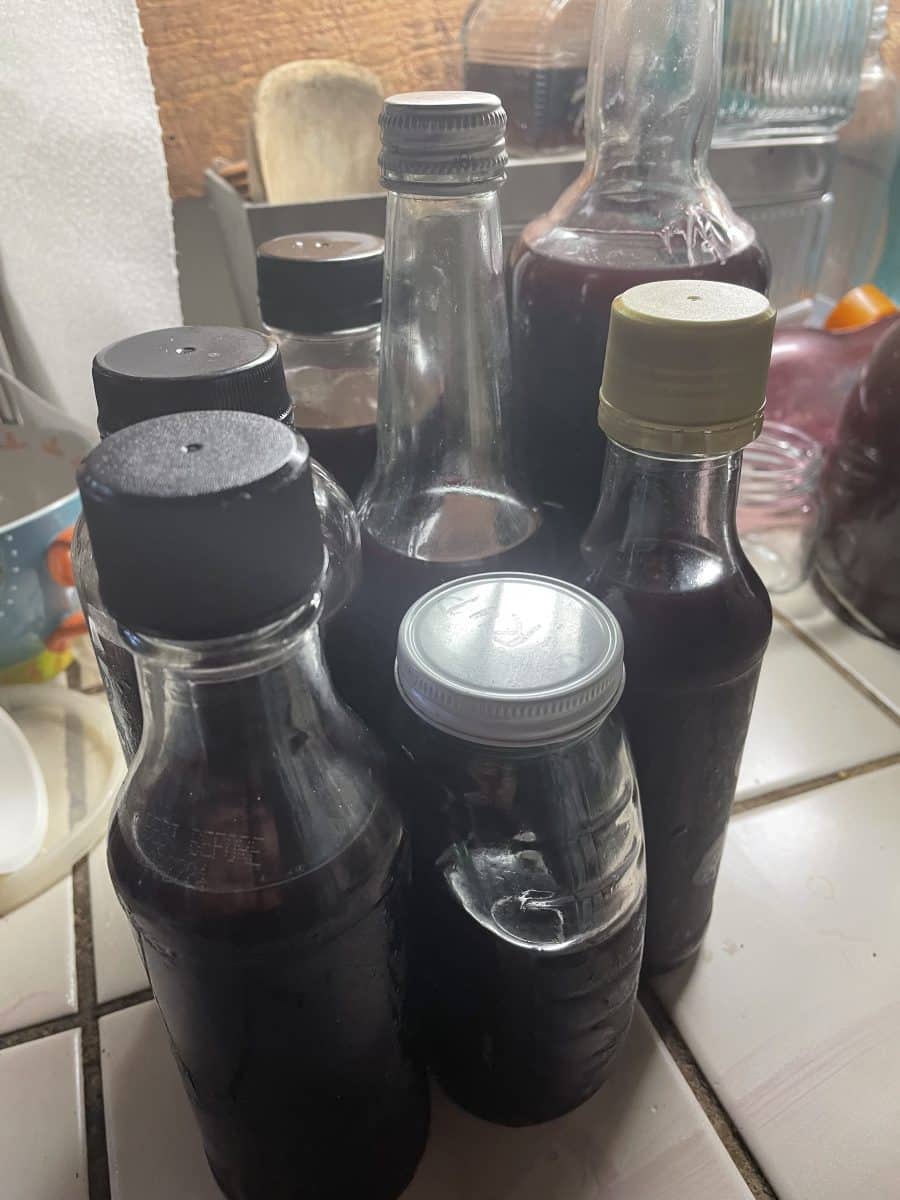Traditionally, the term “syrup” brings to mind a thick, sugary liquid that pairs delightfully with everything from pancakes to cocktails. However, you might be intrigued to discover that the elderberry “syrup” recipe we’re offering is neither thick nor high in sugar. This raises an essential question: What distinguishes syrups from tonics, particularly when the lines between them seem blurred?
The Traditional Syrup
The quintessential syrup is a high-sugar liquid, thick and viscous in texture, frequently used as a sweetener or flavoring agent in foods and beverages. Its composition usually involves dissolving a large amount of sugar in water, sometimes along with other flavors such as fruits, herbs, or spices.
The thickness of a syrup, attributable to its high sugar content, acts not only as a textural element but also as a natural preservative. Syrups can serve a myriad of purposes, from elevating a dessert to being the foundation of cough medicines. They have a long-standing history in both culinary and medicinal applications and have become ubiquitous in many cultures around the world.
The Versatile Tonic
On the other side of the spectrum, we have tonics. Unlike syrups, tonics often feature medicinal herbs, roots, or botanicals and are generally not as sweet. While they can be sugar-based, many tonics opt for an alcohol or water base. Their flavor profile is frequently more complex and can include bitter elements from agents like quinine or gentian.
Historically, tonics have been medicinal elixirs promising a range of health benefits. In the realm of beverages, they are commonly used as mixers, with gin and tonic being a classic example. But don’t let the “mixer” label confine your imagination; tonics can be standalone beverages savored for their intricate flavors and potential health advantages.
The Choice is Yours
When it comes to using syrups and tonics, understanding their traditional definitions can guide you in your culinary ventures. However, don’t let these norms limit your creativity. Whether you’re using our elderberry “syrup” to boost your immune system, as a unique mixer in a cocktail, or as a drizzle over dessert, remember that the essence of culinary art lies in exploration and experimentation.
So, the next time you find yourself pondering whether to reach for a syrup or a tonic, consider what you’re hoping to achieve: sweetness and thickness, or complex flavors and potential health benefits? Or perhaps a delightful blend of both?

